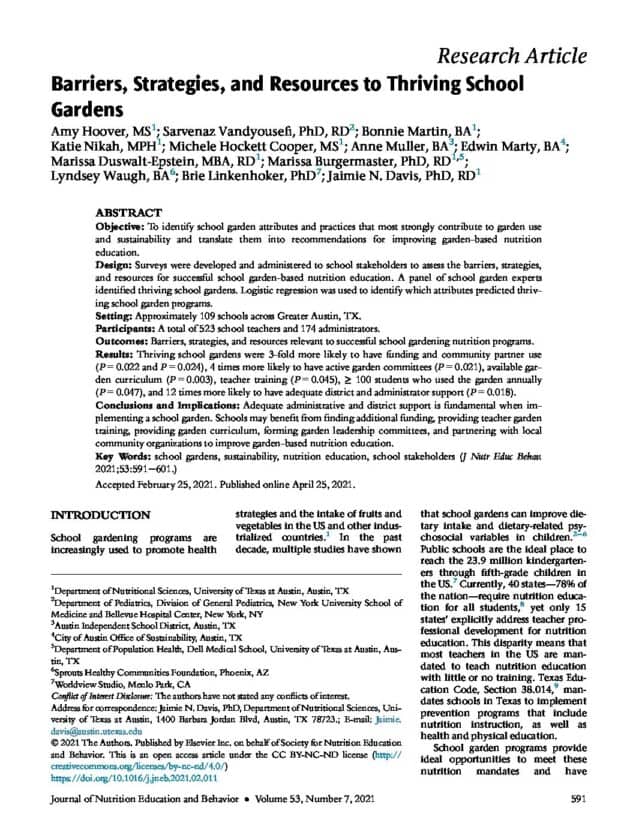Abstract
Objective
To identify school garden attributes and practices that most strongly contribute to garden use and sustainability and translate them into recommendations for improving garden-based nutrition education.
Design
Surveys were developed and administered to school stakeholders to assess the barriers, strategies, and resources for successful school garden-based nutrition education. A panel of school garden experts identified thriving school gardens. Logistic regression was used to identify which attributes predicted thriving school garden programs.
Setting
Approximately 109 schools across Greater Austin, TX.
Participants
A total of 523 school teachers and 174 administrators.
Outcomes
Barriers, strategies, and resources relevant to successful school gardening nutrition programs.
Results
Thriving school gardens were 3-fold more likely to have funding and community partner use (P = 0.022 and P = 0.024), 4 times more likely to have active garden committees (P = 0.021), available garden curriculum (P = 0.003), teacher training (P = 0.045), ≥ 100 students who used the garden annually (P = 0.047), and 12 times more likely to have adequate district and administrator support (P = 0.018).
Conclusions and Implications
Adequate administrative and district support is fundamental when implementing a school garden. Schools may benefit from finding additional funding, providing teacher garden training, providing garden curriculum, forming garden leadership committees, and partnering with local community organizations to improve garden-based nutrition education.



Responses